Forum Talk: Technology, the Global Environmental Challenge, and Democracy
 August's Forum talk
August's Forum talk
WEDNESDAY, 11 AUGUST, 4.30-6.00 P.M. CEST
The Forum Talk on Wednesday, 11 August, 4.30 to 6 PM CEST will bring together CEOs, researchers and policy experts to analyse dimensions of the relationship between global environmental challenges, technology and democracy. This event is organised by the Council of Europe’s World Forum for Democracy in collaboration with the Global Governance Forum and Leiden University, Faculty of Governance and Global Affairs, and will consist in presentations from the invited experts followed by interactive discussion and Q&A with participants.
Theme description:
The unprecedented global ecological challenges posed by climate change and biodiversity loss, among others, raise a range of compelling questions about the intersections between these challenges, the uses and application of current and emerging technology, and the ability of democracies around the world to react effectively to these crises.
On the one hand, current and emerging technology present exciting new solutions to enable better collective responses to the climate and related ecological challenges: for example, through new systems using the latest technologies to ensure global transparency on GHG emissions and climate action, as well as software and open online viewing platforms to develop and track climate action targets at various levels of governance. More, tailored software, using AI technology, may be used to engage citizens and enhance democratic decision-making around the world in connection with the global climate and ecological challenges, as some governments strive to ensure maximal citizen engagement in and commitment to the significant economic and social changes that may be necessary for sufficient climate/environmental action.
On the other side of the coin, there is currently a transnational problem – threatening, potentially, to undermine the fundaments of democracy itself – of technologically-enabled misinformation, disrupting climate action and reducing the capacities of democracies to respond to urgent environmental challenges. How might democracies respond and safeguard vital (global) information ecosystem integrity and ensure citizens around the world get high quality information on ecological challenges?
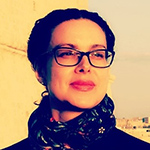
Maja GROFF
International Lawyer and Convenor of the Climate Governance Commission, Netherlands

Maja Groff is an international lawyer based in The Hague, and is a Convenor of the Climate Governance Commission, which seeks to propose high impact global governance innovations adequate to meet the climate challenge. As a Principal Legal Officer, she has worked on the development and administration of multilateral treaties, at international criminal tribunals, taught at the Hague Academy of International Law and is currently a visiting scholar at Leiden University. A graduate of Harvard, Oxford, and McGill Universities, and she is an attorney admitted to practice in the state of New York, formerly working in corporate law. She was a co-winner of a major international prize in 2018 on global governance innovation (New Shape Prize). She serves on the Advisory Boards of BCorp Europe and ebbf, organisations devoted to ethical business.
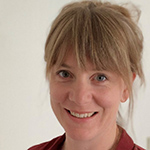
Amy EAGLESTONE
Democracy-Building Expert and Policy Advisor to the Chair of the Dutch Climate Council, Netherlands

Amy Eaglestone is a democracy and dialogue expert at the Social Economic Council of the Netherlands. She is special advisor to the Chairperson of the Dutch Climate Council on issues of democratization and public participation.
She spent most of her career living and working in developing democracies, from South Africa to Liberia to Irak, focussing on democratic approaches to land and water reform as well as natural resource governance. After working for International development organisations and the United Nations she has now returned home to the Netherlands to support the fight against climate change.
Amy has a Master’s degree in sociology and is studying for a PhD in political science.
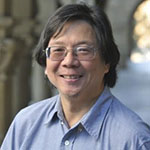
Dr. Herb LIN
Senior Research Scholar at the Center for International Security and Cooperation and Hank J. Holland Fellow in Cyber Policy and Security, Hoover Institution, Stanford University

Dr. Herb Lin is senior research scholar for cyber policy and security at the Center for International Security and Cooperation and Hank J. Holland Fellow in Cyber Policy and Security at the Hoover Institution, both at Stanford University. His research interests relate broadly to policy-related dimensions of cybersecurity and cyberspace, and he is particularly interested in the use of offensive operations in cyberspace as instruments of national policy and in the security dimensions of information warfare and influence operations on national security. In addition to his positions at Stanford University, he is Chief Scientist, Emeritus for the Computer Science and Telecommunications Board, National Research Council (NRC) of the National Academies, where he served from 1990 through 2014 as study director of major projects on public policy and information technology, and Adjunct Senior Research Scholar and Senior Fellow in Cybersecurity (not in residence) at the Saltzman Institute for War and Peace Studies in the School for International and Public Affairs at Columbia University; and a member of the Science and Security Board of the Bulletin of Atomic Scientists. In 2016, he served on President Obama’s Commission on Enhancing National Cybersecurity. Prior to his NRC service, he was a professional staff member and staff scientist for the House Armed Services Committee (1986-1990), where his portfolio included defence policy and arms control issues. He received his doctorate in physics from MIT.
Avocationally, he is a longtime folk and swing dancer and a lousy magician. Apart from his work on cyberspace and cybersecurity, he is published in cognitive science, science education, biophysics, and arms control and defence policy. He also consults on K-12 math and science education.

Gavin Mc CORMICK
Executive Director (WattTime) and Electricity Lead (Climate TRACE)

Gavin McCormick is Executive Director of environmental nonprofit WattTime. WattTime develops and shares "Automated Emissions Reduction" software techniques, which give companies, governments, and people novel means to instantly improve the carbon footprint of their electric vehicles, energy storage systems, power plants, and other devices. Gavin also serves as the electricity lead for Climate TRACE, a joint initiative of ten NGOs and companies working together to combine satellite imagery and artificial intelligence to make global GHG emissions transparent. He holds a masters degree in energy economics from UC Berkeley.
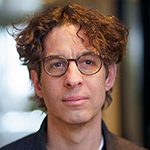
Tomer SHALIT
CPO and Founder of ClimateView

Tomer Shalit is the CPO and Founder of ClimateView, a Swedish climate technology company working with cities around the world to execute their optimal pathway to net zero faster. With over 20 years technology experience, he previously helped large corporations tackle complex problems and execute transformational projects through agile methodologies. He holds numerous patents and is passionate about agent-based modelling.

Soushiant ZANGANEHPOUR
Founder, CEO at Swae.io

Soushiant is a social scientist, entrepreneur and Founder of Swae.io, an AI-powered platform for smarter organizational decisions and 21st century governance. Swae helps companies, cities and organizations of all sizes benefit from the collective intelligence of their employees, stakeholders and citizens helping source innovative ideas, program and product feedback, and policy, budget, and strategy suggestions, at a fraction of the cost.
Soushiant is a recognized global practitioner in the fields of business innovation, impact investing, social entrepreneurship, and sustainability having spoken at numerous international conferences and published in The Guardian, The Financial Times, Bloomberg Business Week, and Entrepreneur magazines. He is on Harvard Business Review’s Advisory Council, and a board advisor of Biocarbon Engineering, a reforestation start-up using drones to replant a billion trees per year.
Soushiant earned his BA (PoliSci & IR) from the University of British Columbia, a Diplôme in International Affairs from SciencesPo Paris, an MPP (Public Policy & Economics) from the University of London’s School of Oriental and African Studies (SOAS), and attended Singularity University’s Global Solutions Program as a Google Scholar. He was awarded a full scholarship by the UK’s Foreign Office as one of four Canadian Chevening Scholars for his Masters

Carmen JURADO TABOADA
Global Challenge ONGAWA NGO, Spain

I am a 3rd-year-student of a double degree in International Studies and Law at Carlos III University of Madrid. I have always been interested in politics, economics and recently, as I joined a university association called Global Challenge, I have been participating in activities related to sustainability, the SDGs and human development. I chose to join the WFD with this association as it is expanding through many universities in Spain and I believe it will have a great impact on the university community.
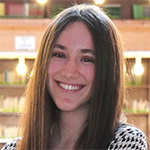
Elena MANSO PALAO
Madrid’s Ambassador for Youth and member of El Generacional, Spain

Can democracy save the environment? Seems like a difficult question to answer, so what if we turn it around? If we let our planet be devastated by climate change, if we let our environment become a place where it is impossible to live in, then how can democracy survive as well?
My deep interest in international relations, social justice and political analysis has only grown since I participated in my first MUN when I was 14 years old. In fact, it helped me choose the university degree I am now studying: Political Science & International Studies. From that moment on, I have been involved in a series of youth-related initiatives and projects, always directly or indirectly committed to sustainability and the future of our planet: Boy Scouts, AIESEC, Amnesty International… Currently, I am Madrid’s Ambassador for Youth (a project framed inside the EU Youth Dialogue initiative), where we try to bring governmental institutions closer to young people. I am as well part of two entirely youth-led projects: El Generacional - where I coordinate a programme of interviews guided by democratic values - and Ideas en Guerra - an emerging think tank focused on social analysis and political communication. In this sense, I am particularly interested in a plethora of topics which will be covered in this year’s edition of the World Forum for Democracy: especially “greening democratic institutions”, and “the environment and the economy”.
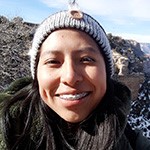
Dayana BLANCO QUIROGA
young climate activist and women indigenous rights, Bolivia

I am an indigenous young climate activist and women indigenous rights. Avoiding losing indigenous communities due to climate change disastrous effects, such droughts, are goals I fight to address. Warmi Shining is an organization I founded and focuses on education for girls from indigenous, low economic, or remote area backgrounds. We believe that empowering them is the best way to fight all the violence they suffer.
The reason why I want to join the World Forum for Democracy is to learn how democracy plays a crucial role and what it can do to support and advocate for the environment and indigenous and minority groups since I am from one of them.
Looking forward to meeting other changemakers from around the world and contributing to each other!
